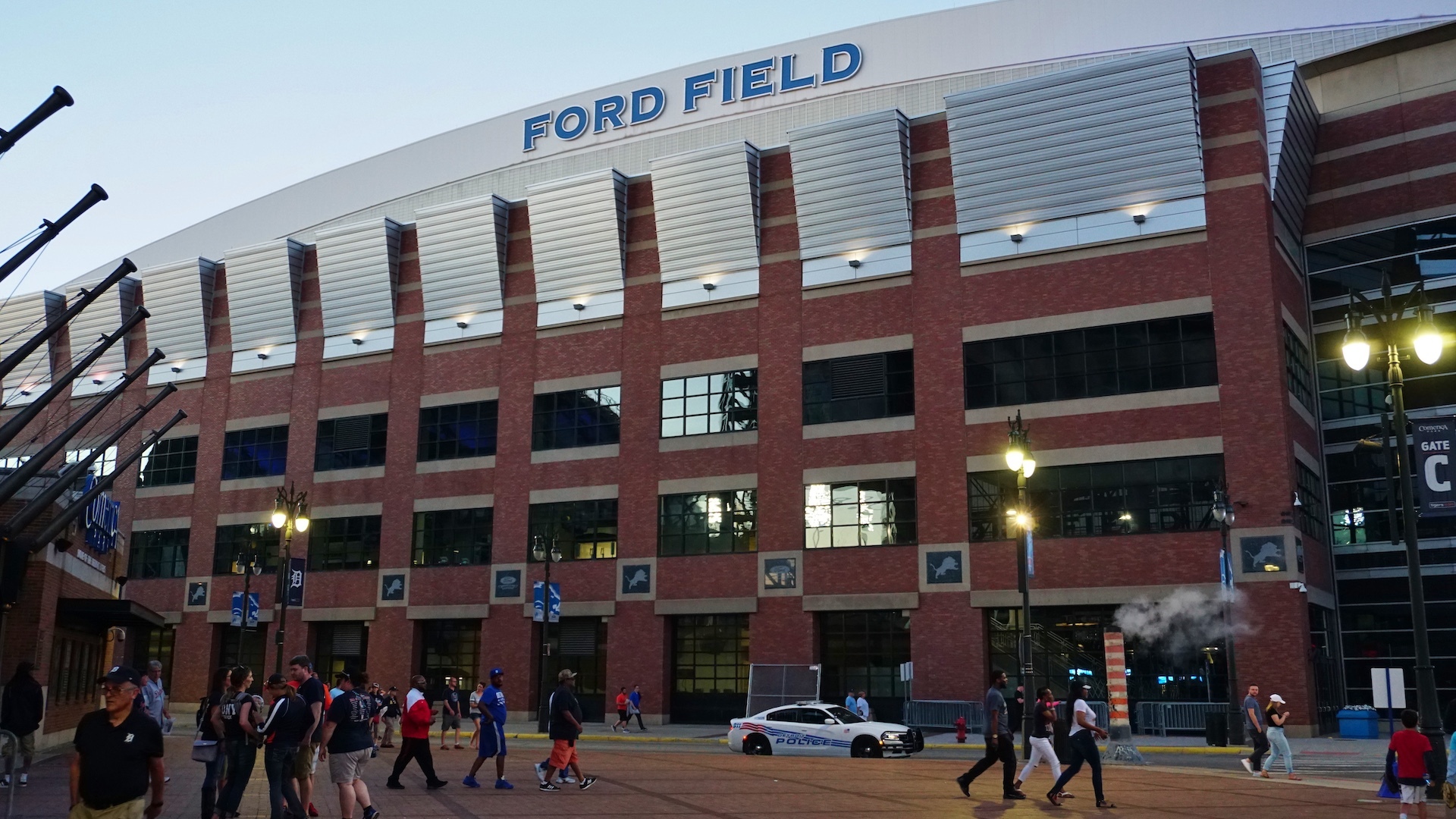Birthright Citizenship Has Been Challenged Before
The 14th Amendment guarantees birthright citizenship, and the courts have long upheld it. President-elect Trump wants to overturn that precedent.


Civil rights organizations are probably already prepping the lawsuit that they will file in the event that Donald Trump issues an executive order restricting birthright citizenship. Their argument will be straightforward. The Fourteenth Amendment, ratified in the wake of the Civil War, guarantees U.S. citizenship to all those “born or naturalized in the United States, and subject to the jurisdiction thereof.” In 1898, in United States v. Wong Kim Ark, the Supreme Court recognized that these words cover everyone born in the United States, except under a very small number of narrowly defined circumstances. The Supreme Court’s holding in Wong Kim Ark has remained undisturbed for the past 126 years. [time-brightcove not-tgx=”true”]
Trump undoubtedly knows that the U.S.-born children of undocumented immigrants are birthright citizens under the court’s longstanding interpretation of the Fourteenth Amendment, as well as under federal statutes that have codified the Wong Kim Ark decision. The point of issuing an executive order would be to provoke a test case, creating a chance for the Trump Administration to ask the Supreme Court to overturn Wong Kim Ark. The consequences of such a ruling would be enormous, turning the clock back to a time when American birthright citizenship was available only to some. That was what America looked like before the Civil War, under the Supreme Court’s infamous decision in Dred Scott v. Sandford, in which the court held that no Black person could be a citizen of the United States. Trump’s executive order, if upheld, would create a new caste of permanent outsiders deprived of fundamental rights, this time based on their parents’ immigration status.
Amid all the recent commentary about the legal questions involved, one important fact has received little attention: it would hardly be the first time that someone has attempted this feat. A Trump executive order restricting birthright citizenship would merely be the latest in a long and ugly history of failed attempts to persuade the Supreme Court to ignore the sweeping breadth of the Fourteenth Amendment’s citizenship clause.
Read More: What to Know About Birthright Citizenship, Which Trump Has Promised to ‘End’
The first test case that aimed to restrict the Fourteenth Amendment’s guarantee of birthright citizenship was the Wong Kim Ark case itself. At the time that the case arose, federal courts regularly recognized the children of Chinese immigrants as birthright citizens under a straightforward application of the Fourteenth Amendment. Some objected to this recognition, arguing that it conflicted with the anti-Chinese policies embodied in both state and federal law at the time, including an immigration statute that singled out Chinese immigrants for exclusion and a naturalization statute that racially barred all Asian immigrants from becoming citizens. They urged the government to create a test case to take to the Supreme Court.

In a move not unlike the one Trump is now contemplating, President Grover Cleveland set in motion a chain of events that culminated in immigration officials denying entry to U.S. citizens of Chinese ancestry returning from trips abroad. That is how Wong Kim Ark, whose U.S. citizenship had been previously recognized by immigration officials, found himself denied entry under the Chinese Exclusion Act. He quickly filed a legal challenge, and the case went up to the Supreme Court, where the government argued that the children of Chinese immigrants were racially unfit for citizenship.
The government’s aggressive move achieved its goal of generating a test case, but ultimately ended in failure. Rather than imposing racial restrictions on birthright citizenship, the Supreme Court instead issued a decision that has protected Chinese Americans and other marginalized citizens ever since. The court noted that before the Civil War, it was “beyond doubt . . . that all white persons, at least, born within the sovereignty of the United States, whether children of citizens or of foreigners, excepting only children of ambassadors or public ministers of a foreign government, were native-born citizens of the United States,” and held that the Fourteenth Amendment extended that principle to all, “restricted only by place and jurisdiction, and not by color or race.”
The decision recognized only three categories of people born on U.S. soil who could be classified as not being born “subject to the jurisdiction” of the United States: children born into membership in sovereign Indigenous nations (an exception later addressed by Congress in the Indian Citizenship Act of 1924); children of high-level foreign diplomats, due to their immunity from U.S. laws; and children born to “alien enemies” occupying territory fully taken over by a foreign power such that it is no longer under U.S. sovereignty.
Since that time, attempts to overturn Wong Kim Ark have arisen periodically. In 1924, Southern white supremacists filed a lawsuit arguing that the Fourteenth Amendment had never been properly ratified, that the Dred Scott decision was still in effect, and that Black people born in the United States were not birthright citizens. A federal judge quickly dismissed the case.
Less than two decades later, at the height of wartime anti-Japanese hysteria in the United States, a coalition of anti-Asian groups in California filed suit arguing that Wong Kim Ark was wrongly decided and that children of Asian immigrants should be racially barred from birthright citizenship. Once again, the case was quickly thrown out.
Read More: The Ghost of Dred Scott Still Haunts Us
The movement to restrict birthright citizenship began to take on its contemporary contours in the 1970s, when immigration restrictionist John Tanton came up with the idea that Trump now advocates: guaranteeing citizenship only to the children of U.S. citizens and lawful permanent residents. Tanton, a doctor by training, often spoke in the sanitized language of environmental conservation and population control, but his extensive entanglement with the eugenics movement and white nationalism is well documented. When he founded the Federation for American Immigration Reform in 1979, the organization considered making birthright citizenship one of its first targets, but set the issue aside after concluding that it would be too difficult to create a test case.
The most recent attempt to litigate the issue occurred in 2004, when then-law professor John Eastman co-authored an amicus brief in Hamdi v. Rumsfeld, a case concerning the due process rights of an accused “enemy combatant” and U.S. citizen whom the United States military had captured in Afghanistan. Eastman’s brief urged the court to rule that Hamdi was not a U.S. citizen because Hamdi’s parents were foreign nationals who were in the United States on temporary visas at the time of his birth. The argument failed: the first line of the court’s decision described the case as being about “the legality of the Government’s detention of a United States citizen on United States soil as an ‘enemy combatant.’” Eastman, who has served in the past as a legal advisor to Trump, is currently fighting disbarment and facing criminal charges, to which he has pleaded not guilty, relating to his role in seeking to overturn the results of the 2020 presidential election.

For 156 years, the Fourteenth Amendment has ensured that all children born in the United States begin their lives as citizens. The citizenship clause is arguably the strongest expression of an anti-caste principle to be found in the American legal system. Sadly, it is also a perennial target.
It remains to be seen if Trump will add another chapter to this shameful saga. A test case would of course be worrisome, given the current Supreme Court’s recent willingness to abandon longstanding principles on a number of important issues. Yet the language of the Fourteenth Amendment—“all those born and naturalized in the United States, and subject to the jurisdiction thereof”—is undeniably broad, and the court’s conservative justices have given no indication that they want to upend the long-settled principle of birthright citizenship. It is unlikely that Trump will fare any better than his predecessors.
Rachel E. Rosenbloom is Professor of Law at Northeastern University School of Law. She is writing a book about the history of efforts to restrict constitutional birthright citizenship.
Made by History takes readers beyond the headlines with articles written and edited by professional historians. Learn more about Made by History at TIME here. Opinions expressed do not necessarily reflect the views of TIME editors.




































/cdn.vox-cdn.com/uploads/chorus_asset/file/24435316/STK150_Bing_AI_Chatbot_02.jpg)










![United Passenger’s Upgrade Mishap Sparks Seat Loss—Here’s the Critical Step to Avoid It [Roundup]](https://viewfromthewing.com/wp-content/uploads/2018/09/20170607_112204.jpg?#)



























